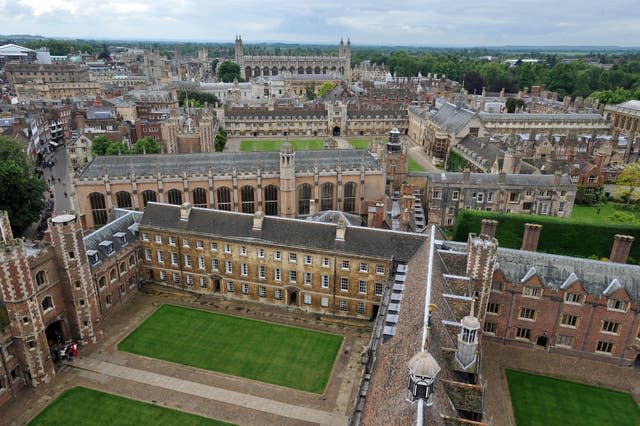Scholar-activist wins Nine Dots Prize with ‘provocative’ interpretation of law
Scholar-activist Joanna Kusiak has won the Nine Dots Prize for her “provocative” essay using the 2021 Berlin referendum to argue that the rule of law has always been fragile.
The Cambridge-based researcher will receive 100,000 dollars (£80,447) and a book deal with Cambridge University Press for her response to the question “Why has the rule of law become so fragile?”
Every two years the prize is awarded to a book that is not yet written, with the board setting a question and inviting people to respond with a 3,000-word essay and a book proposal.

The prize money enables winners to research, develop their ideas and turn their essay responses into a full-length book published by Cambridge University Press.
Ms Kusiak’s winning essay takes the case of the 2021 Berlin referendum, in which voters decided to expropriate more than 240,000 properties from corporate landlords into public ownership, to demonstrate the potential of radically legal politics as a way of deepening democracies and renewing the rule of law.
She fought off competition from 600 submissions from more than 50 countries to win the prize for creative thinking that tackles contemporary societal issues.
The Polish-born winner said: “The rule of law promises that all people are free and equal, yet too often it fails to deliver on its promise, getting entangled by power.
“My book, provisionally titled Radically Legal, showcases how social movements in Berlin and Warsaw work with the law to renew its emancipatory potential.
The Nine Dots Prize is now closed for entries. Thank you so much to everyone who submitted their applications. Our judges are looking forward to reading some truly creative takes on the 2022/2023 Prize question! pic.twitter.com/p4ctLonEus
— The Nine Dots Prize (@NineDotsPrize) January 23, 2023
“My proposal was the work of love, and I feel elevated by winning the Nine Dots Prize.
“I am a scholar-activist, which means that I only engage with the topics that I believe are socially important.”
The book, which will also look at the story of the Berlin movement and the relationship between law and justice, is set to be published in May 2024.
Nine Dots Prize board member and judge Professor David Runciman said of the winning entry: “What’s so exciting about this proposal from a new voice is the way it mixes the urgency of contemporary politics with the complexity of recent history.
“Nowhere has the rule of law been subject to more violently different interpretations than in Berlin over the last century.
“This exploration of the fight over property rights in the city uses the past to illuminate the present and uses the present to suggest an alternative future. Not everyone will agree with what’s in this book, but it is sure to provoke fierce argument, which is what the Nine Dots Prize is for.”
As part of the prize win, Ms Kusiak, who lives in Berlin, is invited to spend a term at the Centre for Research in the Arts, Social Sciences and Humanities (Crassh), Cambridge University.

 Yahoo News
Yahoo News 
